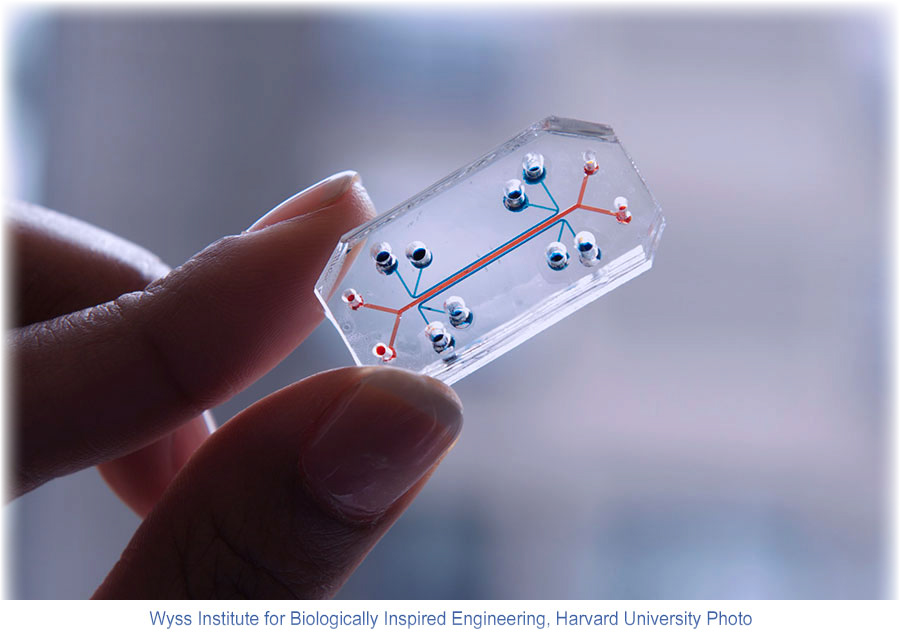Phase 1 of the SCGE program had five different initiatives that project groups worked towards. In addition to the five initiatives, there was a Collaboration Opportunity Fund to promote the exchange, cross-testing, and evaluation of the improved technologies within the consortium. Learn more about the different projects below, and find the latest publications from Phase 1 projects at the link.
Animal Reporter and Testing Centers

| Rodent Testing Centers for Development of Reporter Systems and Evaluation of Somatic Cell Genome Editing Tools (U42 Clinical Trial Not Allowed) RFA-RM-18-012 | ||
|---|---|---|
| PI Name | Institution Name | Title |
| HEANEY, JASON D (contact) DICKINSON, MARY E LAGOR, WILLIAM RAYMOND |
BAYLOR COLLEGE OF MEDICINE | BCM-Rice resource for the analysis of somatic gene editing in mice |
| MURRAY, STEPHEN A (contact) LUTZ, CATHLEEN M |
JACKSON LABORATORY | The Jackson Laboratory Gene Editing Testing Center (JAX-GETC) |
| Development of Large Animal Reporter Systems for Testing Somatic Cell Genome Editing Tools (U24 Clinical Trial Not Allowed) RFA-RM-18-013 | ||
|---|---|---|
| PI Name | Institution Name | Title |
| CARLSON, DANIEL FRED | RECOMBINETICS, INC. | Development of Swine Reporter Models for Testing Somatic Cell Genome Editing Tools |
| FENG, GUOPING | MASSACHUSETTS INSTITUTE OF TECHNOLOGY | Knockin marmoset reporters for non-invasive measuring of genome-editing efficiency |
| HENNEBOLD, JON D | OREGON HEALTH & SCIENCE UNIVERSITY | Rhesus Macaque Somatic Cell Gene Editing Resource |
| Large Animal Testing Centers for Evaluation of Somatic Cell Genome Editing Tools (U42 – Clinical Trial Not Allowed) RFA-RM-18-014 | ||
|---|---|---|
| PI Name | Institution Name | Title |
| TARANTAL, ALICE F (contact) SEGAL, DAVID J |
UNIVERSITY OF CALIFORNIA, DAVIS |
Nonhuman Primate Testing Center for Evaluation of Somatic Cell Genome Editing Tools |
| WELLS, KEVIN (contact PRATHER, RANDALL |
UNIVERSITY OF MISSOURI, COLUMBIA | Swine Somatic Cell Genome Editing (SCGE) Center |
Biological Effects Projects
| Development of Cell and Tissue Platforms to Detect Adverse Biological Consequences of Somatic Cell Gene Editing (U01 Clinical Trial Not Allowed) RFA-RM-18-015 | ||
|---|---|---|
| PI Name | Institution Name | Title |
| KIANI, SAMIRA | UNIVERSITY OF PITTSBURGH AT PITTSBURGH | Multicell type human liver on chip microphysiological platform to examine CRISPR- based gene modulation. |
| CONKLIN, BRUCE | J. DAVID GLADSTONE INSTITUTES | Human microtissues for in situ detection and functional measurement of adverse consequences caused by genome editing |
| SAHA, KRISHANU (contact) GAMM, DAVID M ROY, SUSHMITA SKALA, MELISSA CAROLINE |
UNIVERSITY OF WISCONSIN-MADISON | Single Cell Profiling To Define Biomarkers Of Photoreceptor Dysfunction After Gene Editing Within PSC-Derived Organoids |
| TSAI, SHENGDAR | ST. JUDE CHILDREN’S RESEARCH HOSPITAL | A novel human T-cell platform to define biological effects of genome editing |
| Development of Cell and Tissue Platforms to Detect Adverse Biological Consequences of Somatic Cell Genome Editing (U01 Clinical Trial Not Allowed) RFA-RM-18-022 | ||
|---|---|---|
| PI Name | Institution Name | Title |
| FREEDMAN, BENJAMIN SOLOMON | UNIVERSITY OF WASHINGTON |
Improving the Safety of Genome Editing With Human Kidney Organoids |
| GERSBACH, CHARLES A. (contact) BURSAC, NENAD TRUSKEY, GEORGE A |
DUKE UNIVERSITY |
Microphysiological Human Tissue Systems for Monitoring of Genome Editing Outcomes |
| HINSON, JOHN TRAVIS | UNIVERSITY OF CONNECTICUT SCH OF MED/DNT | Human cardiac microtissues with innate immune sensing to study adverse consequences of genome editing |
| MORIZANE, RYUJI (contact) LEWIS, JENNIFER A. SABBISETTI, VENKATA |
MASSACHUSETTS GENERAL HOSPITAL | Vascularized kidney organoids on chip for efficacy and toxicity testing of somatic genome editing |
| Innovative Technologies to Non-Invasively Monitor Genome Edited Cells In Vivo (UH2/UH3 Clinical Trial Not Allowed) RFA-RM-18-025 | ||
|---|---|---|
| PI Name | Institution Name | Title |
| BULTE, JEFF W | JOHNS HOPKINS UNIVERSITY | Non-Invasive Tracking of Genome-Corrected iPS cells in ALS |
| RONALD, JOHN ANDREW | UNIVERSITY OF WESTERN ONTARIO | Non-Invasive Monitoring of CRISPR/Cas-Edited Chimeric Antigen Receptor T (CAR-T) Cells with Reporter Gene-Based Magnetic Resonance Imaging and Positron Emission Tomography |
| TARANTAL, ALICE F (contact) SEGAL, DAVID J |
UNIVERSITY OF CALIFORNIA AT DAVIS | Innovative Translational Imaging Technologies to Monitor Genome Edited Cells in Vivo |
| VANDSBURGER, MORIEL | UNIVERSITY OF CALIFORNIA BERKELEY | Molecular MRI for in vivo tracking of gene editing and gene edited cells |
Delivery Systems Projects

Genome Editor Projects

| Expanding the Human Genome Engineering Repertoire (U01 Clinical Trial Not Allowed) RFA-RM-18-017 | ||
|---|---|---|
| PI Name | Institution Name | Title |
| DOUDNA, JENNIFER A (contact) BANFIELD, JILLIAN |
UNIVERSITY OF CALIFORNIA BERKELEY | Expanding CRISPR-Cas editing technology through exploration of novel Cas proteins and DNA repair systems |
| EKKER, STEPHEN CARL (contact) CLARK, KARL J |
MAYO CLINIC ROCHESTER | Building the mitochondrial genome editing repertoire |
| LIU, DAVID R | BROAD INSTITUTE, INC. | Expanding the Scope of Base Editing |
| Expanding the Human Genome Engineering Repertoire (U01 Clinical Trial Not Allowed) RFA-RM-18-024 | ||
|---|---|---|
| PI Name | Institution Name | Title |
| GERSBACH, CHARLES A | DUKE UNIVERSITY | Epigenome Editing Technologies for Treating Diverse Disease |
| GLAZER, PETER M (contact) LY, DANITH H SALTZMAN, W. MARK |
YALE UNIVERSITY | PNA Nanoparticles for Gene Editing In Vivo |
Dissemination and Coordinating Center

| Somatic Cell Genome Editing Dissemination and Coordinating Center (U24 – Clinical Trial Not Allowed) RFA-RM-18-018 | ||
|---|---|---|
| PI Name | Institution Name | Title |
| DWINELL, MELINDA R |
MEDICAL COLLEGE OF WISCONSIN | Dissemination and Coordinating Center for the SCGE Consortium |
Collaboration Opportunity Fund (COF) Projects
The Collaboration Opportunity Fund (COF) was meant to promote the exchange, cross-testing and evaluation of the improved technologies within the Somatic Cell Genome Editing (SCGE) Consortium. In phase 1, the COF supported new and pilot research projects led by SCGE-supported investigators.
| Year | Title | Collaborators | Collaboration Institution |
|---|---|---|---|
| 2019-2020 | Evaluation of LNP-based nanoparticles for systematic delivery of base editors | Peter Glazer, MD PhD | Yale University |
| W. Mark Saltzman, PhD | Yale University | ||
| Alice Tarantal, PhD | University of California at Davis | ||
| 2019-2020 | Improved reporters to evaluate base editor activity in mice | Steve Murray, PhD | Jackson Laboratory |
| David Liu, PhD | Broad Institute | ||
| 2019-2020 | Development of a GFP-IVS2 Mouse Reporter Strain for PNA-based Genome Editing Detection | Steve Murray, PhD | Jackson Laboratory |
| Peter Glazer, MD PhD | Yale University | ||
| 2019-2020 | Nanoparticles delivery of new Cas enzymes | Niren Murthy, PhD | University of California Berkeley |
| Jennifer Doudna, PhD | University of California Berkeley | ||
| 2019-2020 | Comparing the efficiency and cellular impact of non-viral, hepatocyte-targeted delivery vehicles with viral-mediated gene delivery in a microphysiological liver on chip platform | Samira Kiani, PhD | University of Pittsburgh |
| Shaoqin Gong, PhD | University of Wisconsin-Madison | ||
| Ross Wilson, PhD | University of California Berkeley | ||
| 2019-2020 | Non-enzymatic gene editing of hematopoietic cells in utero in nonhuman primates by next generation PNA nanoparticles | Zheng-Yi Chen, PhD | Massachusetts Eye and Ear Infirmary |
| Qiaobing Xu, PhD | Tufts University | ||
| David Liu, PhD | Broad Institute | ||
| 2019-2020 | Adenine Base Editor Ribonucleoprotein Delivery to Primary Airway Epithelia using Amphiphilic Peptids | Paul McCray, MD | University of Iowa |
| Alice Tarantal, PhD | University of California at Davis | ||
| David Liu, PhD | Broad Institute | ||
| David Guay, PhD | Feldan Institute | ||
| 2019-2020 | RNP delivery platforms for biodistribution of genome editors to human neural microtissues | Todd McDevitt, PhD | Gladstone Institute |
| Ross Wilson, PhD | University of California Berkeley | ||
| 2020-2021 | Guide Engineering to Enhance the Safety and Efficacy of Base Editing in vivo | Erik Sontheimer, PhD | University of Massachusetts Medical School |
| David Liu, PhD | Broad Institute | ||
| 2020-2021 | Development of a single AAV vector CRISPR-CasΦ platform technology | Jennifer Doudna, PhD | University of California Berkeley |
| David Liu, PhD | Broad Institute | ||
| Ben Deverman, PhD | Broad Institute | ||
| 2020-2021 | Novel virus-like particles (VLPs) for precise delivery of base-editors in iPSC disease models | Bruce Conklin, MD | Gladstone Institute |
| Jennifer Doudna, PhD | University of California Berkeley | ||
| 2020-2021 | Cas9 ribonucleoprotein delivery targeted to kidney epithelium | Ross Wilson, PhD | University of California Berkeley |
| Benjamin Freedman, PhD | University of Washington | ||
| 2020-2021 | Developing methods for unbiased off-target genome editing analysis in vivo | Scot Wolfe, PhD | University of Massachusetts Medical School |
| Wen Xue, PhD | University of Massachusetts Medical School | ||
| 2020-2021 | Improving Split AAV9 Base Editors In Mice | Cathleen Lutz, PhD | Jackson Laboratory |
| David Liu, PhD | Broad Institute | ||
| 2020-2021 | CEST based imaging of Cas9-b-lactamase fusion proteins | Niren Murthy, PhD | University of California Berkeley |
| Moriel Vandsburger, PhD | University of California Berkeley | ||
| 2021-2022 | Assessment of Prime Editing in Rhesus Monkeys | David Liu, PhD | Broad Institute |
| Alice Tarantal, PhD | University of California at Davis | ||
| 2021-2022 | Enhanced in vivo editing of the endothelium via a novel adenovirus-AAV chimera vector | David Curiel, MD PhD | Washington University in St. Louis |
| Gang Bao, PhD | Rice University | ||
| Bill Lagor, PhD | Baylor College of Medicine | ||
| 2021-2022 | Identification and optimization of shuttle peptides-mediated local RNP delivery of editing complex in the sensory organs of the inner ear and retina in vivo in mice and the pig | Zheng-Yi Chen, PhD | Massachusetts Eye and Ear Infirmary |
| David Guay, PhD | Feldan Institute | ||
| 2021-2022 | Nanoparticle-based delivery of Mitochondrial Based Editors | Steve Ekker, PhD | Mayo Clinic |
| Sarah Gong, PhD | University of Wisconsin-Madison | ||
| 2021-2022 | Libraries of Cas9-mRNA nanoparticles in human iPSC-derived neurons | Bruce Conklin, MD | Gladstone Institute |
| James Dahlman, PhD | Georgia Institute of Technology | ||
| 2021-2022 | Editing the Kidney Epigenome | Beno Freedman, PhD | University of Washington |
| Charlie Gersbach, PhD | Duke University | ||
| Aravind Asokan, PhD | Duke University | ||
| 2021-2022 | Evaluation of Immune Responses to Novel Editors in Rhesus Monkeys | Jennifer Doudna, PhD | University of California Berkeley |
| Alice Tarantal, PhD | University of California at Davis |



